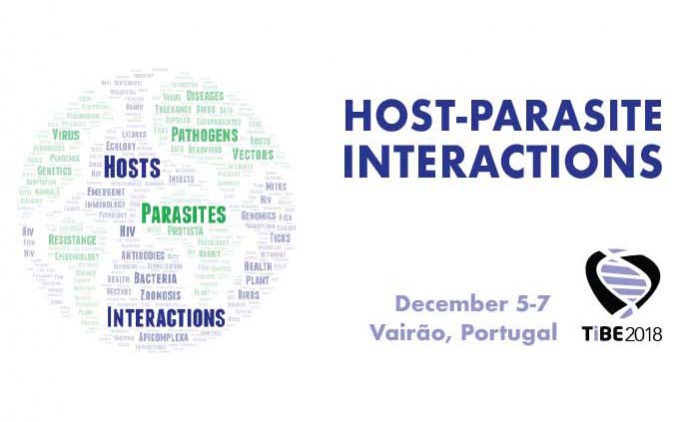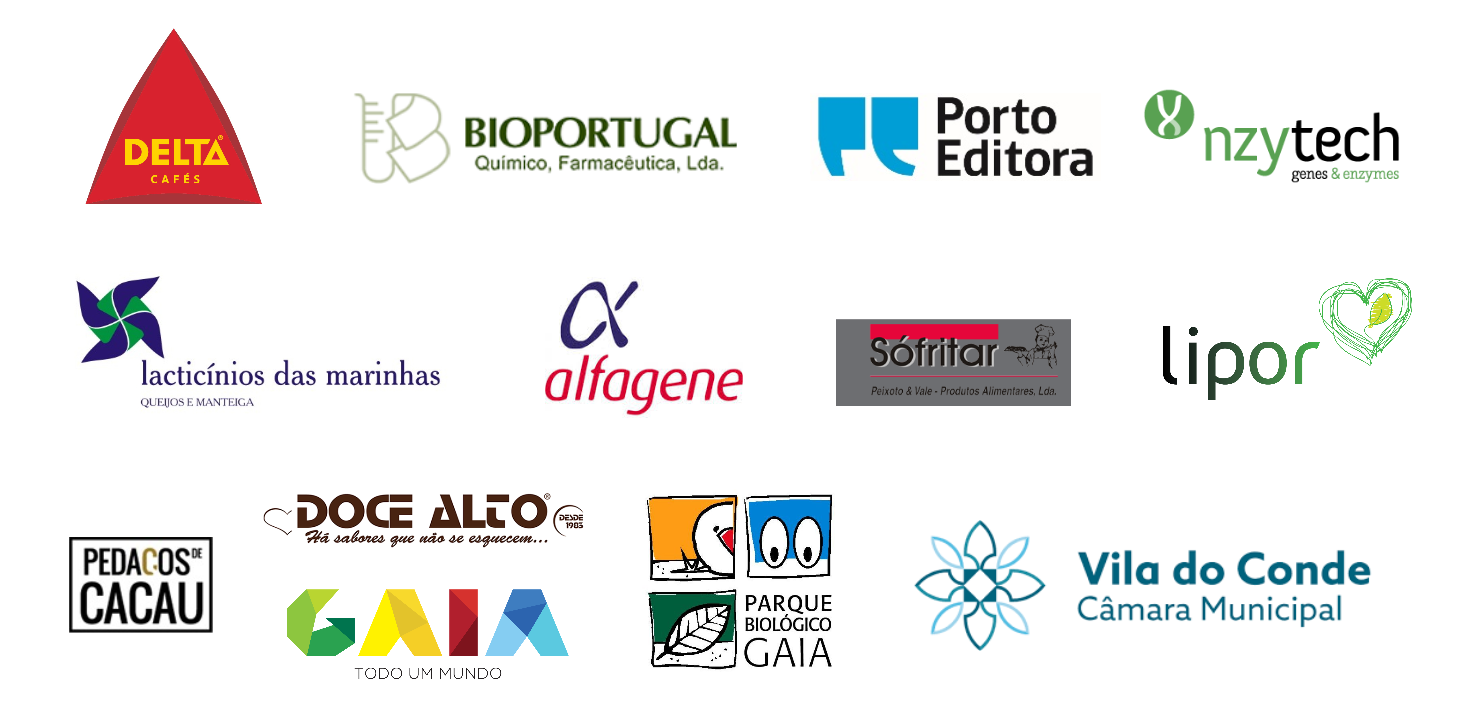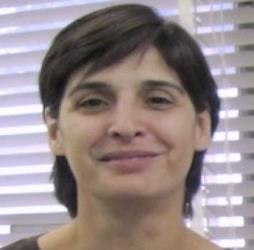TiBE 2018 | HOST-PARASITE INTERACTIONS

TiBE, Trends in Biodiversity and Evolution, is an annual meeting organized by CIBIO-InBIO, which aims to bring together senior researchers, post-graduate and graduate students working on the field of evolutionary biology to present and discuss cutting-edge findings in relevant topics related with speciation, molecular evolution, comparative genomics, ecology, population and conservation genetics research, among others. Held in an informal but stimulating scientific atmosphere, these conferences provide an excellent opportunity for strong interaction and brainstorming between students and more experienced researchers.
This year, TiBE2018 will be devoted to HOST-PARASITE INTERACTIONS. Globalization and ongoing climate change have brought new opportunities for disease spread and parasite/pathogen evolution. Concomitantly recent methodological advances presently allow overcoming most of the previous limitations on parasites detection, providing exciting opportunities for a better understanding of parasite communities and the interaction between these organisms and their hosts. During four sessions, we will approach ongoing research on different aspects of host-parasite interactions: evolution and diversity of parasites, host-parasite molecular and ecological interactions, epidemiology and current challenges. We believe that this is an excellent opportunity to share and disseminate the cutting-edge research currently being done in this field. The conference will take place on 5-7 December, 2018 at CIBIO-InBIO facilities in Vairão, Portugal. It will include 4 invited plenary talks, 16 oral communications (to be selected) and poster sessions.
IMPORTANT DATES
Abstract submission deadline: October 29, 2018
Abstract acceptance: October 31, 2018
Early registration deadline: November 15, 2018
Late registration: November 16 - November 28, 2018 (both included)
INVITED SPEAKERS
 |
Eduardo Rocha did a MSc in Chemical Engineering and another in Applied Maths, a PhD in Bioinformatics and an Habilitation in Biology. He is a senior researcher at CNRS and head of the Microbial Evolutionary Genomics unit at Pasteur Institute since 2008. He is a Specialist in comparative genomics, in particular in the use of bioinformatics and biostatistics to study microbial evolution. His research aims at understanding how and why genomes are organized, and how such organizational features evolve in respect to genome dynamics and bacterial adaptation. In the last decade, his work has focused on the role of mobile genetic elements in driving their host evolution through horizontal gene transfer. This affects the genomes of both Bacteria and their mobile genetic elements and has implications on the spread of virulence factors and antibiotic resistance genes. |
|
Maria João Amorim, Instituto Gulbenkian da Ciência, Oeiras (Portugal) |
|
|
|
Maria João Amorim is a virologist. After graduating in Biochemistry in Portugal, she went to UK where she conducted her PhD in Cambridge, and worked as a postdoc in the National Institute for Medical Research in London and as associated researcher back in Cambridge. In 2012 she came back to Portugal, where she leads the Cell Biology of Viral Infection research group at the Instituto Gulbenkian de Ciência. Her research is focused on the influenza A virus. She is currently working on several projects regarding the host response to viral infections, including the viral infection pathways, trafficking events and their contribution to viral assembly as well as the host machinery needed to sustain viral infection. |
|
Sylvain Gandon, Centre d'Ecologie Fonctionnelle et Evolutive, Montpellier (France) |
|
|
|
Sylvain Gandon is an evolutionary biologist with a broad general interest ranging from theoretical population genetics, and mathematical epidemiology, to behavioral and evolutionary ecology. He combines theoretical and experimental approaches to study the ecology and evolution of host-parasite interactions. He studied the influence of spatial structure and migration on host-parasite coevolution and local adaptation. He is also interested in the impact of therapeutic interventions like drugs or vaccines on the evolution of pathogens. He is currently working on two experimental models: (1) the coevolution between bacteria and their bacteriophages and (2) the evolutionary ecology of avian malaria. |
|
|
Dina Fonseca is a Professor in the department of Entomology and Director of the Center for Vector Biology (CVB) at Rutgers University. Populations change over space and time, profoundly affecting epidemiological and economic landscapes and risk estimates. Rapid evolution in invasive species can predict the effects of Global Climate Change on disease epidemiology. Dina’s research develop tools to reveal incipient infestations, identify which traits are associated with expansion and damage and optimize management strategies. They investigate how species arrive, thrive, change, and (if capable vectors) transmit new and local pathogens to wildlife, livestock, pets and humans. |
PROGRAMME
Click here to access the programme
SESSION 1: EVOLUTION & DIVERSITY
Plenary talk | Horizontal gene transfer: from cellular infection to functional innovation
Eduardo Rocha – Institute Pasteur, Paris (France)
SESSION 2: MOLECULAR INTERACTIONS: CELLS & ORGANISMS
Plenary talk | Strategies of influenza A virus adaptation to the host
Maria João Amorim, Instituto Gulbenkian da Ciência, Oeiras (Portugal)
SESSION 3: ECOLOGICAL INTERACTIONS AND EPIDEMIOLOGY
Plenary talk | Evolution and manipulation of vector host choice
Sylvain Gandon, CEFE, Montpellier (France)
SESSION 4: CHALLENGES IN A CHANGING WORLD
Plenary talk | Challenges and opportunities associated with management of disease vectors in a changing world
Dina M. Fonseca, Center for Vector Biology, Rutgers University (USA)
REGISTRATION FEES
Values in euros (€)
|
|
Early Registration October 1 - November 15, 2018 (both included) |
|
Late Registration November 16 - November 28, 2018 (both included) |
|
BGE MSc students* |
0 |
|
0 |
|
1st year – BIODIV PhD program* |
0 |
|
0 |
|
2nd year onwards - BIODIV PhD program*(1) |
15 |
|
15 |
|
Other CIBIO-InBIO members (1) |
25 |
|
40 |
|
Students from other institutions (1) (2) |
50 |
|
75 |
|
Non-students from other institutions (1) (2) |
100 |
|
150 |
* must present evidence of status.
(1) coffee-breaks included
(2) lunches included
REGISTRATION FORM
Click here to access the registration form.
ABSTRACT GUIDELINES
The conference will accept contributions in two formats: oral presentations and posters.
Oral presentations will consist of 15 minutes presentation followed by 5 minutes for discussion. Posters will be presented in a 1 min-flash talks in the auditorium (poster in PDF format displayed in the background) to stimulate audience’s interest for the poster and will be displayed in panels (format 120 cm high x 80 cm wide) and discussed in poster sessions. Only registered participants are allowed as presenting authors.
Please, download the abstract submission template here.
Once your abstract is ready, please name your file as SURNAME1stAUTHOR_P for posters or SURNAME1stAUTHOR_O for oral communications and send it to tibe@cibio.up.pt.
Deadline for abstract submission is October 29, 2018. Abstract acceptance will be communicated by e-mail by October 30, 2018.
WHERE TO STAY
A limited number of rooms is available at the Campus (priority for students and low-income participants).
Prices: 25€ if occupied by a single person; 35 € if shared by two persons.
For reservations please contact Márcia Magalhães: (00351) 252 660 400; marcia@cibio.up.pt
Some accommodations have discount agreements with CIBIO-InBIO (refer to CIBIO at reservation).
Vila do Conde: Hotel Brasão
Póvoa de Varzim: Hotel Costa Verde
Porto: Pensão Favorita
Information on how to get to the venue here (coordinates: 41.328940, -8.672635).
ORGANIZING COMMITTEE
Joana Abrantes
Ricardo Jorge Lopes
Ana Margarida Lopes
Ana Perera
Raquel Xavier
Ana Pinheiro
Fabiana Neves
SCIENTIFIC COMMITTEE
Rita Covas
Pedro Esteves
Gabriela Gomes
Claire Loiseau
Nuno Santos
Fernando Tavares
ORGANIZATION:

SPONSORS:

FUNDING PARTNERS:



